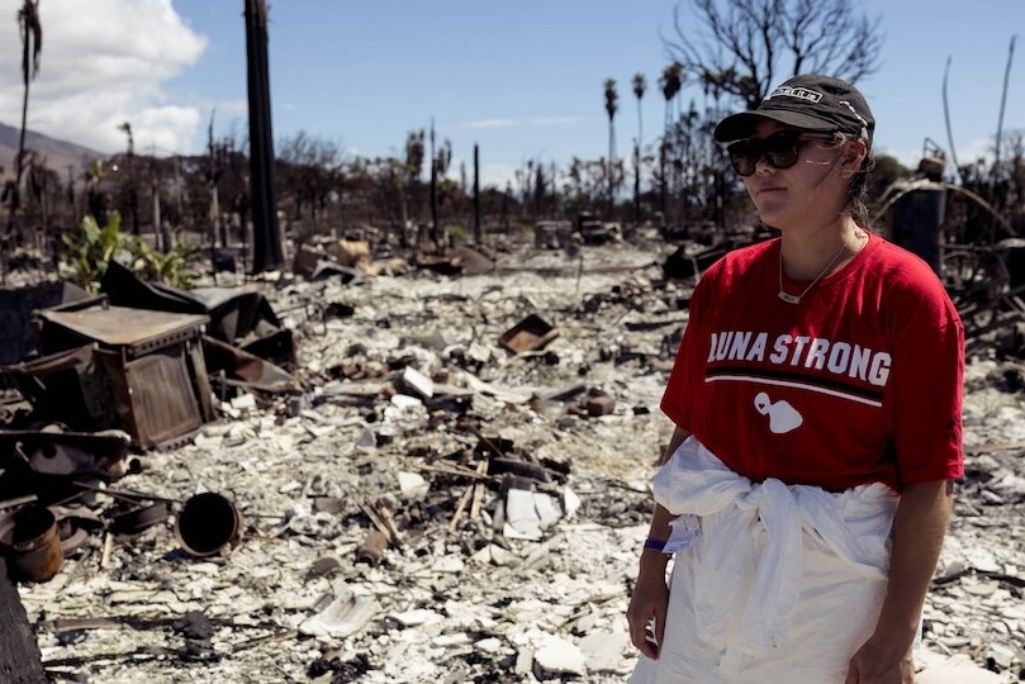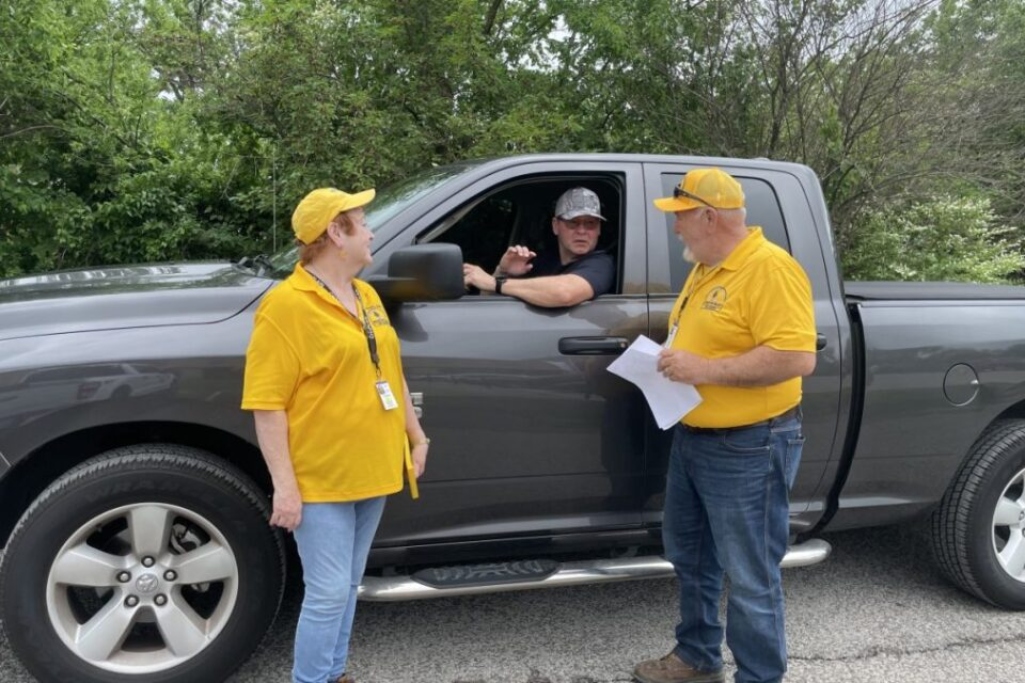
Mari Finn stands near the ruins of her Lahaina home, where volunteers with Texas Baptist Men helped her sift through ashes to find precious mementos.
LAHAINA, Hawaii (BP) – When Mari Finn awoke on Aug. 8 to heavy winds and no power, she assumed it was like any other storm that would pass. But as the storm progressed, a wildfire blazed through Lahaina. It ultimately destroyed more than 2,000 acres and killed 97 people.
Months later, Finn finally was allowed to return to her property, but she was not alone. A team of Texas Baptist Men disaster relief volunteers were right beside her in October as she sifted through the ash, hoping to find anything that may have survived.
Standing on her property and looking at the devastation, she recounted Aug. 8, when the fire erupted. Finn, a technology coordinator at a high school in Lahaina on the island of Maui, expected to go to school for the first day of freshman orientation. She never made it.
Maui was expecting a hurricane, but not in Lahaina. By 6:30 a.m., there were rumors of a wildfire by the elementary school, but soon cell phone service was disrupted, cutting all communication and access to social media.
The wind continued to intensify.
“You couldn’t walk around straight because of the way the wind was pushing you,” Finn said. “You had to kind of lean so you wouldn’t be knocked over.”
Gusts of wind pelted the sand against her legs so hard she had bruises the next day. The wind continued to blow, and the fires continued to grow.
Policemen used their car radios to inform residents to evacuate, but many residents felt they were safe from the fire. Because of the winds, it was hard to smell the fire, Finn said.
It gave a false sense of security. Residents had no way of knowing how close the fires were until they could see them. By then, there was little time to escape.
Finn and her family were able to evacuate, but many others didn’t make it. Some died trying to save their families. When Finn was allowed to return to her home two months later, it was destroyed. Dust, ash and rubble were all that remained of the home she lived in with her parents and niece.
“It was surreal,” Finn said. “It still doesn’t feel right.”
Finn returned to her property to recover any possessions that may have survived and connected instantly with the TBM volunteers there to help her.
“This experience is horrible,” Finn said. “But these people [the TBM volunteers] are amazing humans. They have been a blessing in this entire experience, and I am so thankful and grateful to have them here helping. As we got through the day together, they became like family. I mean, they are just like extended members of our family now.”
‘There’s a lot of tears flowing’
TBM volunteers have been in Maui since Oct. 7, helping residents, like Finn, sort through the ash and rubble and look for possessions on their property.
“There’s a lot of emotion that happens whenever they see their house for the first time,” said Curt Neal, TBM fire and flood coordinator. “When they left their house, it was fully intact. … And of course, they’ve seen their house from afar, that there appears to be nothing but ashes. But when they get up close, that’s when reality hits. So, there’s a lot of tears flowing.”
Due to the condition of the properties and the potential of unsafe particles, volunteers must be fully suited in personal protective equipment from head to toe – white Tyvek suits, booties, a hood, goggles and a mask.
The protective gear is meant to keep the unsafe particles away from the body, but it also blocks ventilation. It gets hot, almost suffocating, in the suits in the mid-80s temperature and no shade.
The work is so physically demanding, the teams are required to rest 20 minutes for every 20 minutes of work.
“Fire recovery efforts can be very demanding physically, emotionally and spiritually because we’re working with families that literally had to run from their homes to escape a fire,” said Gary Herndon, a TBM volunteer in Maui.
“When they come back, oftentimes, there may be nothing left but a pillar or part of a cinder block wall. Trees, the vegetation, everything burned up. And so, it’s a work of love.”
The volunteers were able to help Finn recover several items – ceramic bowls and plates, coins, some jewelry and her brother’s army medals, which she said was a blessing to discover.
“I don’t believe we found a lot of things that are of great monetary value,” said TBM volunteer Ann Neal. “But what you find when you’re doing these ash outs is most people are not looking for those material things. They’re looking for things that mean something to them and their family that they can pass down through the generations.”
Being at her property and seeing the destruction was overwhelming for Finn. But she found comfort looking to her left and seeing the same mountain that was always there and looking to her right and seeing the ocean and hearing the comforting sounds of the waves crash against the beach just as it always does.
“The fire destroyed the material things in our lives, but left us with what is important – us,” Finn said. “Nobody in my family got injured or passed away, and we thank God for that every day.”
(EDITOR’S NOTE – This story appeared in the Baptist Standard.)


